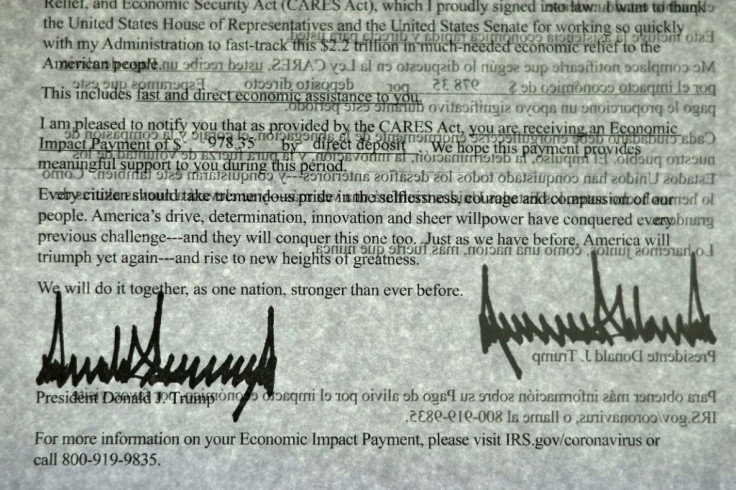Walmart Reports Strong US Sales As It Retreats From Some Overseas Markets
Walmart scored another round of strong earnings Tuesday as it sharpens its focus on e-commerce growth and retreats from some overseas markets with the coronavirus roiling the retail economy.
The world's biggest retailer enjoyed another quarter of lofty US sales, although the gains moderated from earlier in the pandemic when rival "non-essential" retailers were closed and shoppers boosted by US government stimulus funds.
Executives said the pandemic had hastened shifts towards "omnichannel" retail that meets the needs of consumers who want to shop at home or retrieve packages at stores after ordering them online.
Pickup is available at three-quarters of Walmart's 4,753 US stores and same-day delivery operates from about 60 percent of the stores.
Walmart has been embroiled in a battle with Amazon for market share and unveiled in September a "Walmart +" subscription plan that provides free delivery and rivals Amazon's "Prime" service.
"We're convinced that most of the behavior will persist beyond the pandemic," Chief Executive Doug McMillon said of the changes in consumer habits.

"Customers will want to be served in a variety of ways, and we're positioned to save them money, provide the variety of product choices they're looking for and deliver the experience they choose in the moment," McMillon said on a conference call with analysts.
Walmart said e-commerce sales grew 79 percent in the quarter. But the retail giant still does not break out the line item by revenue and executives indicated the venture is still not profitable on its own.
"We have made progress," said McMillon. "We got a lot of upside in front of us."
Net income came in at $5.1 billion, up 56.2 percent from the year-ago period, following a 5.2 percent increase in sales to $134.7 billion in the quarter ending October 31, easily topping analyst estimates.
Walmart's US division accounted for nearly 80 percent of its operating profits during the quarter, but the company has also made significant changes in its international portfolio in recent weeks.

Since early October, Walmart has announced transactions to sell or radically scale back its holdings in businesses in Britain, Argentina and Japan.
Walmart divested Argentina entirely, but maintained stakes in the other two countries, examples of "flexible" structures that benefit Walmart as it focuses on its core overseas markets, said Walmart International Chief Executive Judith McKenna.
In Japan Walmart will sell 85 percent its Japanese subsidiary Seiyu to investment firm KKR and e-commerce group Rakuten for 172.5 billion yen ($1.6 billion).
"This is a really new type of model that we're creating for international," said McKenna, who listed India, China, Mexica and Canada as core overseas markets.
"We still really benefit from all of the good things about being a global retailer, not least of which sharing best practice and innovation and talent around the world."
Back in the US, Walmart reported third-quarter same-store sales growth of 6.4 percent, a strong increase, but below the 9.3 percent gain in the second quarter and the 10 percent jump in the first quarter, which included the most severe of the spring lockdowns.
Some trends have continued throughout the unpredictable pandemic period, with shoppers going to stores less frequently but buying more when they go.
The number of transactions fell 14.2 percent during the quarter at US stores, but the average ticket surged 24 percent.
While Walmart's US results were still strong, the moderation from the earlier surge partly reflects Walmart's ties to shoppers with modest incomes and the hit from expiring US government stimulus payments, said Neil Saunders, Managing Director of GlobalData.
"Walmart is more exposed to this group than many other retailers and, as a result saw some deterioration in spending levels," Saunders said in a note.
"Unless a new round of stimulus is agreed, retailers will need to navigate this new landscape into the fourth quarter and beyond," Saunders said, while adding that the company is still well positioned compared to other chains.
Shares fell 2.0 percent to $149.37.
© Copyright AFP 2024. All rights reserved.




















